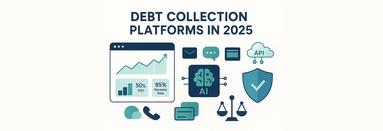How to Identify Phantom Debt
Identifying phantom debt can be challenging, but recognizing the warning signs can help you stay vigilant. One clear indicator is receiving debt collection calls or letters for debts you don't recognize. These claims often come with threats of legal action or harm to your credit score, designed to pressure you into paying quickly.
Another red flag is discrepancies in your financial records. If you notice charges or debts that don't match your accounts or transactions, it's crucial to investigate further. Always cross-reference any debt claims with your own records to verify their legitimacy. Additionally, be cautious of debt collectors who refuse to provide written verification of the debt. Legitimate debt collectors are legally required to offer this information upon request.
Finally, if the debt details are vague or the creditor is unfamiliar, it's important to conduct further investigation. Many phantom debt schemes involve fictitious creditors or defunct companies. Taking the time to verify the debt can protect you from falling victim to these scams.

The Risks and Consequences
Ignoring or mishandling phantom debt can trigger a cascade of adverse outcomes. Financially, your business might incur significant losses by paying off non-existent debts, which drains resources and diverts funds from legitimate expenses and investments.
Legally, phantom debt issues can entangle you in complex litigation. Disputing the debt may escalate to court battles, resulting in legal fees and the potential for damaging judgments against your business. Moreover, your business's reputation could suffer. Being associated with debt disputes, even if unfounded, can erode trust among clients, partners, and stakeholders.
Additionally, the stress and time consumed in dealing with phantom debt can distract you from focusing on core business operations. This diversion can lead to missed opportunities and decreased productivity, further impacting your bottom line.

Protecting Your Business
Maintaining a proactive stance against phantom debt is crucial for financial stability. Start by keeping meticulous financial records, ensuring every transaction is documented and cross-referenced with your bank statements. Regular audits can help identify inconsistencies early, preventing minor issues from escalating.
Educate your team on the signs of phantom debt and establish protocols for managing suspicious debt claims. A clear process can prevent panic and ensure methodical resolution. Additionally, consider subscribing to credit monitoring services, which can alert you to any unusual activity related to your business credit, providing early warnings of potential phantom debt claims.
Finally, don't hesitate to seek legal advice when faced with a suspicious debt claim. A legal expert can help you navigate the complexities of debt disputes and ensure your business's rights are protected.

Real-Life Examples
To illustrate the impact of phantom debt, consider these real-life scenarios. In one instance, a small retail business started receiving aggressive calls from a debt collector demanding payment for a loan the owner had never taken out. After investigation, it was revealed that the debt was fabricated by a fraudulent company. The business owner successfully avoided payment by challenging the debt and reporting the scam to authorities.
In another case, a mid-sized tech firm noticed several high-value transactions that did not match any of their records. A thorough audit uncovered that these transactions were part of a scheme involving a former employee who had created phantom debts to siphon funds. The company took legal action and tightened financial controls to prevent future incidents.
These examples underscore the importance of vigilance and prompt action when dealing with phantom debt. Ignoring such issues can lead to significant financial and reputational damage.

Conclusion
Phantom debt can be a subtle yet significant threat to your business if not properly managed. Understanding phantom debt, recognizing its warning signs, and implementing protective measures are crucial steps to safeguard your business from its adverse effects. Remaining proactive and well-informed is your best defense against phantom debt.
Take action today to fortify your business. Educate your team, maintain precise financial records, and seek professional advice when needed. These steps will ensure your business remains financially robust and resilient in the face of phantom debt threats.
For further insights and tailored guidance, reach out to our team of financial experts. They can help you navigate the complexities of business finance.
































